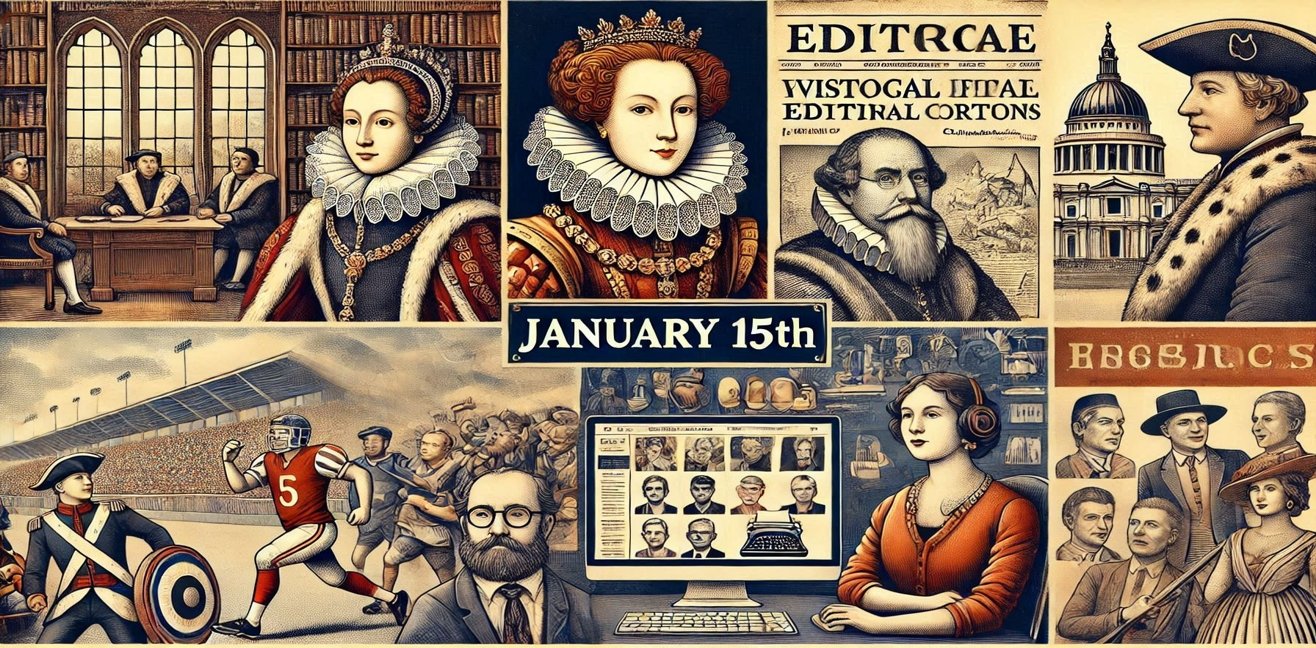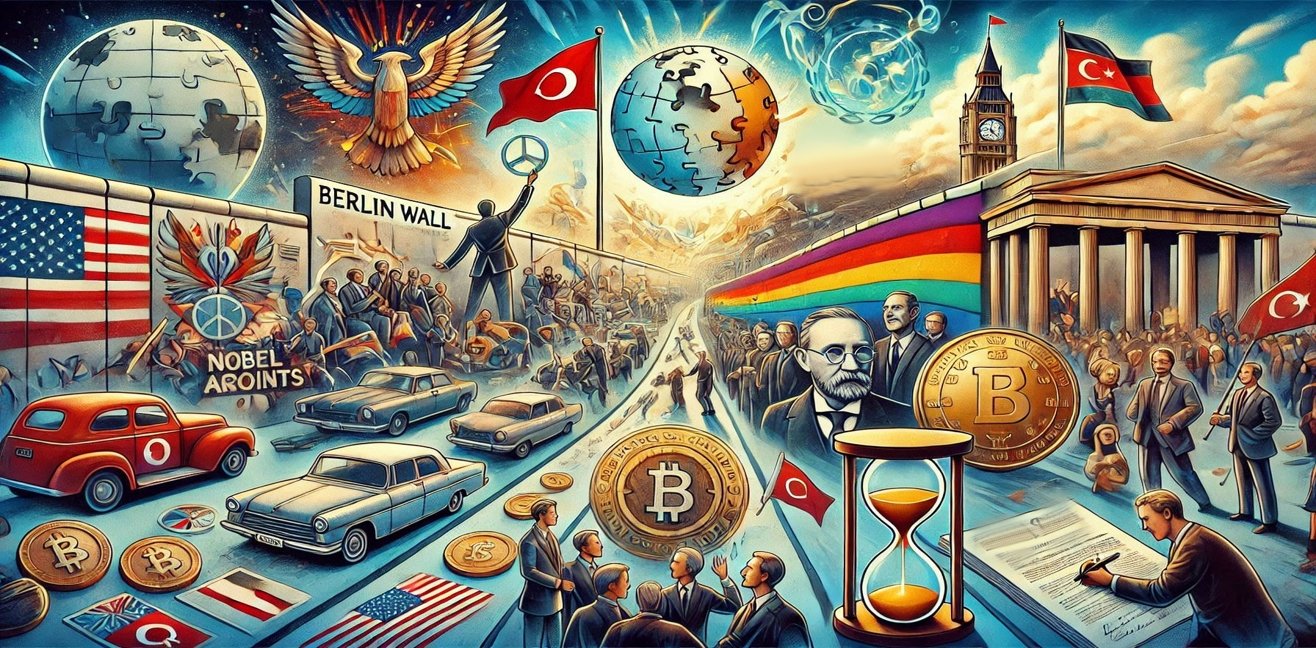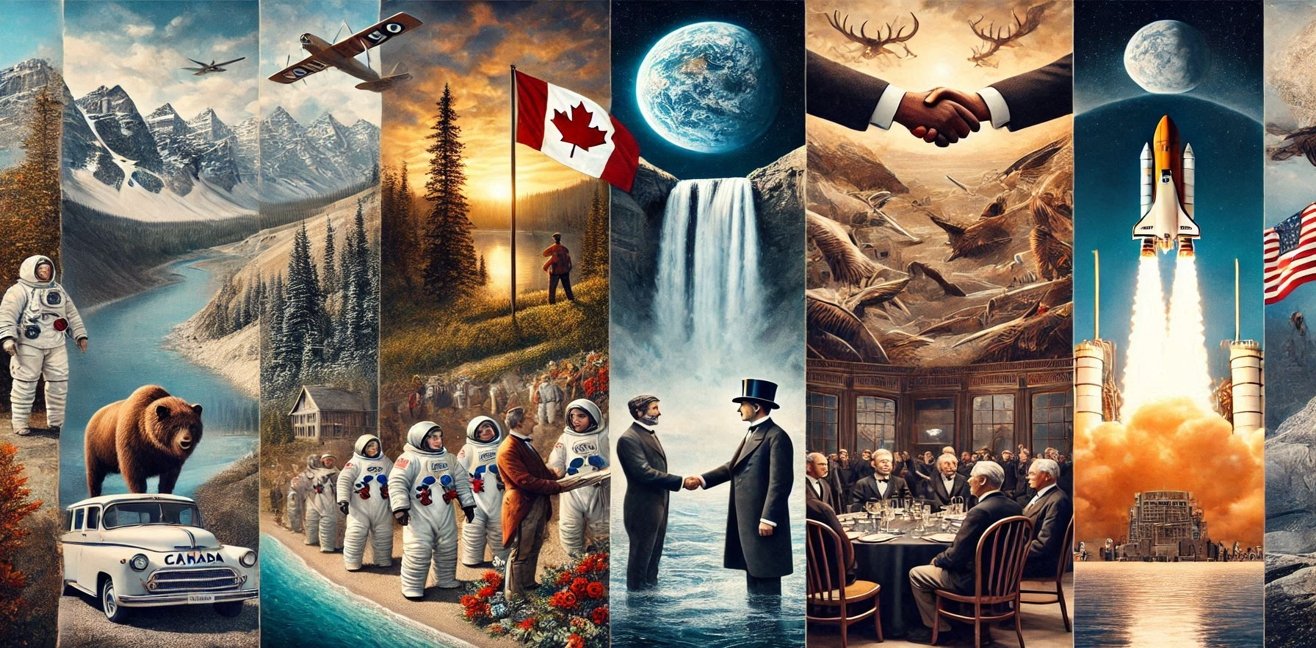History is like a notebook where each day writes its own stories. Today, January 15th! Let’s take a look at some of the significant events that have left their mark on this date in history.
1559 – Queen Elizabeth I Became Queen of England
Today marks a turning point in English history. In 1559, Queen Elizabeth I ascended to the throne of England, and throughout her long reign, she led the country into a golden age, politically, economically, and culturally. Known as the “Virgin Queen,” Elizabeth witnessed the era of Shakespeare and played a key role in establishing England as a superpower on the seas.
1870 – The First Modern Cartoon Magazine Was Published
On January 15th, 1870, the first modern cartoon magazine, “The New Yorker,” was published in the United States. The power of humor and satire gained mass appeal through this magazine. People were able to smile and reflect on everything from politics to social issues through cartoons. Today, humor magazines and cartoons continue to carry on this cultural legacy!
1919 – The Tragic End of Rosa Luxemburg and Karl Liebknecht
In Germany, on this day in 1919, socialist leaders Rosa Luxemburg and Karl Liebknecht were tragically killed by paramilitary groups following the Spartacist Uprising. Rosa Luxemburg’s famous quote, “Freedom is always the freedom of those who think differently,” remains a symbol of the struggle for freedom and equality to this day.
1967 – The First Super Bowl Was Played
American football’s most prestigious event, the Super Bowl, was held for the first time on January 15, 1967. The historic match between the Green Bay Packers and Kansas City Chiefs became a pivotal moment in American sports culture. Today, the Super Bowl is more than just a sporting event; it is a celebration of commercials, halftime shows, and a spectacle that represents the peak of American entertainment.
2001 – The Birth of Wikipedia
A revolution in the democratization of knowledge occurred on January 15, 2001, with the launch of Wikipedia. Today, this platform provides billions of people with free access to information. Wikipedia, with its slogan “Free Knowledge for Everyone,” has grown into more than just an internet phenomenon; it is a symbol of equality in accessing information.




